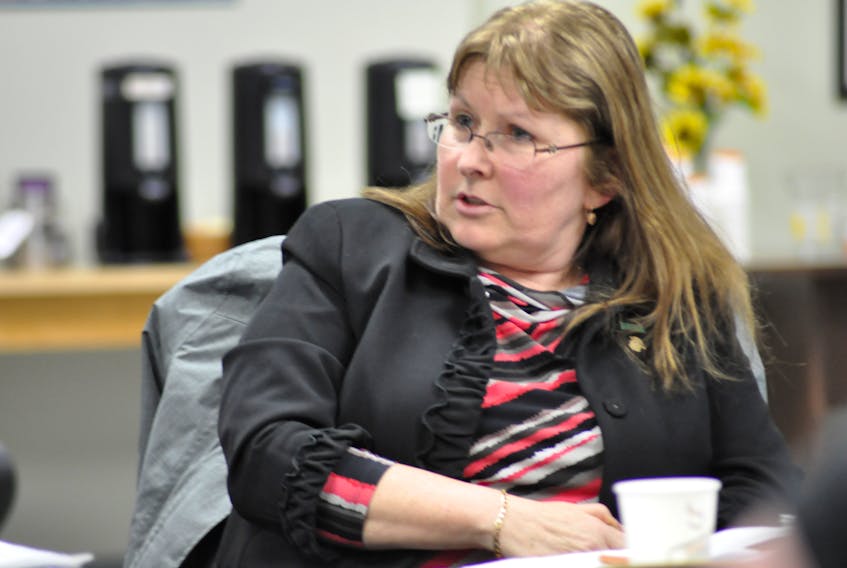KENTVILLE, N.S. — A former home and school group president in Aylesford says she doesn’t have much faith in the new school advisory councils in Nova Scotia.
Heather Vaughan Burton is a past president of the Home & School Association at St. Mary’s Elementary School in Aylesford, and a parent of two children in school – one attending St. Mary’s and another attending West Kings District High School in Auburn.
She questions what ability the SACs will have in terms of submitting recommendations to the province, and guaranteeing these will be implemented – or even considered.
“These councils seem like a trumped-up home and school group, but we already have those, so these, to me, sound like they are redundant, and so we’re still just parents in the community without a real communication link to the department,” she says.
But newly-appointed Pine Ridge Middle School SAC chair Jennifer Vaino feels these new councils mean such groups will be taken seriously for the first time.
As her council finalizes its bylaws with the province, Vaino says she feels its inclusion of community members and students themselves – her SAC has three student representatives – is a game changer.
“These are involving more people in the area to have direct input on policy. As a parent, it’s so nice knowing students can go ‘I’m in this class, and this happens,’ and have a direct say themselves, and that gives a much more personal perspective and spotlight on what they are actually experiencing,” she says.
New roles of SACs
The new school advisory councils are defined by the Department of Education and Early Childhood Development as “an advisory body to the school principal [and] Regional Centre for Education… on a range of issues related to the school and the school system.”
It says each council will receive $5,000 plus $1 for each student to support student achievement at the school, and that council membership typically includes the school principal, parents, teachers and other community members. Anyone who wants to form a SAC at their school can do so by contacting its principal.
Minutes from the Provincial Advisory Council on Education’s Halifax meeting on Dec. 8-9 confirm the Annapolis Valley Regional Centre for Education region was the last in the province to receive guidance on setting up SACs.
AVRCE communications officer Kristen Loyst has confirmed there are currently six active SACs in the region at Annapolis West Education Centre, Clark Rutherford Memorial School, Central Kings Rural High School, Lawrencetown Consolidated School, Middleton Regional High School and Wolfville School, with Pine Ridge soon to be added to the list. The centre’s website states it has a total 40 schools and two adult high schools.
Last region to receive SAC support
AVRCE school support services supervisor Mike Ouellette is the region’s point-person for SAC support and says this delay could have been for many reasons, and says the region was “only slightly” behind the curve since the government began rolling out its SAC program in October 2018.
He says he facilitated several regional SAC meetings in the Annapolis Valley in December to advise school principals and community on how the councils function, and will continue assisting with their set up at various schools.
“Right now, the biggest thing I’m doing is helping [the councils] understand what’s different, and what it means to now have $5,000 to use to support the school. They’ve never had that before,” he says.
“It’s just getting new SACs up and started, transitioning parent and teacher association groups, Home and Schools, and getting that right. Many schools have very active parent groups, and some of these will continue to exist and work collaboratively with their SAC.”
Ouellette hopes the AVRCE region will have a larger number of councils by this spring, and that by fall the region will see numerous schools readily engaging in regional SAC meetings. But, he says, this will not happen overnight.
“People are still wondering where we are, what progress has been made – these are big changes that will take lots of time,” he says.
Things far from clear for some
Vaino also serves as Home & School Association chairperson at Pine Ridge and says her group will join forces with its SAC because they feel it will be taken more seriously than the H&S alone.
She says some have never taken the association seriously because it was mainly a fundraising group, but that recognition from the province will change that.
“It all just seems more official. I am hoping these will change more and have more of an effect for the kids, and I think they will be because we now have more policies to look over and provide feedback on,” she says.
But former Annapolis Valley Regional School Board member Jacqueline Foster says calls she’s received from parents and community members in the Annapolis Valley suggest they aren’t clear on SAC details, nor that regional meetings were held to clarify confusion.
Foster says she’s “stayed informed” on education changes since her last meeting as part of the AVRSB on Mar. 27, 2018 but didn’t know the meetings even happened.
She says her concern for the best interest of students “did not end when the school board was dissolved” and is “still going strong” as she and those calling her seek further clarification.
Question of accountability
Foster says another concern she has is regarding accountability within the new education system is whether the province must listen to and consider content from these local groups.
“We, as a school board, were accountable to the public. I’m now a public citizen, and I’ve gone on various school websites and there’s been nothing that I’ve seen,” she says.
“Will our local voices be heard?”
Vaughan Burton also says her doubts remain regarding the efficacy of SACs because there seems to be nothing stating the province must adhere to the recommendations coming from the councils.
She says the past year she’s felt parents have been left without a voice, and she doesn’t think it will be changing soon.
“School board representatives could better hold the government accountable because they were elected and served as employees of the province. These are only advisory councils – that doesn’t have the same ring to it,” she says.
“I just don’t see how these will make a difference. They have no teeth, and no power to make the government act.”
Department spokesperson Chrissy Matheson provided a statement from the province stating SACs will be asked to “provide input into policy development such as provincial bus service and extracurricular school supports,” and that their input and feedback “will be incorporated in the development of new policy for education.”
It also stated the funding SACs will receive will directly “support initiatives that promote student achievement and wellbeing.”
RELATED:
- ‘System problem’ behind province’s decision to dissolve seven school boards: Churchill
- ‘Too many unknowns’ reason Kings County vice-principal is leaving job
- Annapolis Valley school board celebrates successes, hard work over 22 years at final meeting
- VIDEO: Province introduces legislation to remove principals from NSTU, dissolve school boards
- Kings County reacts to current climate of education system in Nova Scotia
- Stakeholders say reasons behind changes affecting future speech-language pathologists, other specialists lack clarity









